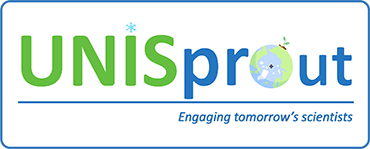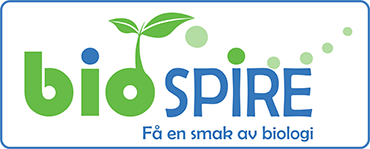Background
Practical training can give biology students authentic learning experiences and prepare them for a professional career after their studies. At many biology programs practical skill and competence training is introduced late in the curriculum and many students shows interest in more opportunities for hands on practical activities early in their studies. To be able to shorten this gap, the bioCEED student representatives at UiB and UNIS have developed two similar student-led projects “bioSPIRE” and “UNISprout” that invite undergraduates to get a taste of practical biology early in their curriculum.
Goal & purpose
The projects bioSPIRE and UNISprout are located at the Department of Biological Sciences, University of Bergen and at the Department of Arctic Biology, the University Centre in Svalbard, respectively. The aim of bioSPIRE/UNISprout is to provide BSc-students with an opportunity to gain practical experience in biology by joining local research projects which is mainly led by MSc- and PhD students, postdocs and technical staff. BSc-students enroll in a mentor’s project for up to 40 hours or one week of fieldwork or cruises1. The students learn the background and rationale of the study while they learn to collect samples. They also contribute to a real research project and become part of the local scientific community that hosts the project. It will help BSc-students to form a network within the departments and between different levels of education as they get to know “older” students and staff through the work of these projects. This may again stimulate BSc-students to pursue with a MSc- or PhD degree within academia or learn valuable skills for working as a biologist outside of academia. On the other hand, MSc- and PhD students, postdocs and technical staff will receive help with their work, and they will get the chance to practice supervision in a work situation, as well as disseminate their field of expertise.
_________________________________________
1We have the opportunity to offer cruise-based internships, but so far we have not had any cruise-based projects to offer, however, we will continue to encourage MSc-, PhD students, postdocs and technical staff to register such projects if they can.
Innovative
Teaching
Teaching resources
Tutorials
Numerical competency
Web-based platform
Community
bioSPIRE/UNISprout bring together two communities:
- those who seek practical experience in biology (BSc-students)
- those who wish to invite students to get a practical experience in biology (Project providers: MSc- and PhD students, post docs and technical staff)
The link between communities is facilitated by the bioSPIRE/UNISprout leaders (student representatives and bioCEED coordinators) who invite project providers to come with concrete training offers, advertise the offers both online and in the student environments (see below in activities) and follow up on the trainees and their experience.
Description of activity
- An online platform (e.g., bioSPIRE.w.uib.no and UNISprout.w.uib.no) is set up where MSc- and PhD students, post docs and technical staff can register and post their research projects and the help that is needed.
- bioSPIRE/UNISprout leaders organize and lead information meetings targeting the potential project providers (MSc- and PhD students, postdocs and technical staff). The meetings inform about the project in general, suggest potential projects, inform about project registration and approval, field and lab safety regulations at the institution, etc. It is also important that leaders reach out directly to the community of MSc- and PhD students who might be interested in getting involved in the project or would benefit of an additional pair.
- When receiving suggestions for research projects through the web platform the bioSPIRE/UNISprout leaders approve the projects, and the projects are posted on the web platform as well in relevant channels.
- BSc-students are free to choose the projects they want to participate in and contact the project providers of the research project directly. Both parties may then decide to enter a bioSPIRE/UNISprout agreement that is valid for up to 40 hours per project. BSc-students are free to participate in as many projects as they want, for a maximum duration of 40 working hours (alternatively 5 days on fieldwork or cruises) per offer. Project providers are free to submit as many offers, they want as long as the tasks to perform are related to biological research and limited to 40 hours/5 days on fieldwork/cruise and respect the HSE rules at the institution.
- As the BSc-students ends their involvement in the project, the BSc-students get a certificate that confirms their participation in the research project, including a description of what they did, and what skills they learned. The certificate is written (by using a certificate template) and signed by the project providers.
Other considerations
We chose a limit of 40 hours per project participation as we expect it to be enough time to let the student get familiar with a procedure or method, but not so long that it would overload their full-time schedule as a student.
We also did not want the project leaders to plan their project(s) around having a bioSPIRE student do many hours of "free labour"; we thus encourage leaders to design longer (or more demanding) projects and recruit students through either a research practice course (BIO299 in Bergen, or AB-207 in Svalbard), or a paid internship. bioSPIRE can also be a stepping stone into a BIO299/AB-207 if the students find the topic interesting.
Contributors
- Tina Dahl
- Ragnhild Gya
- Jonathan Soulé


